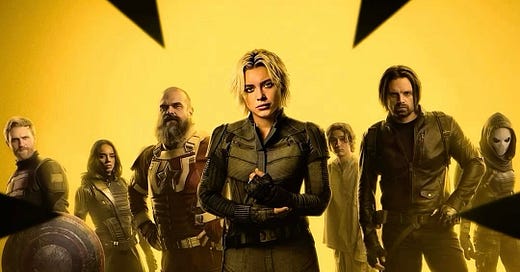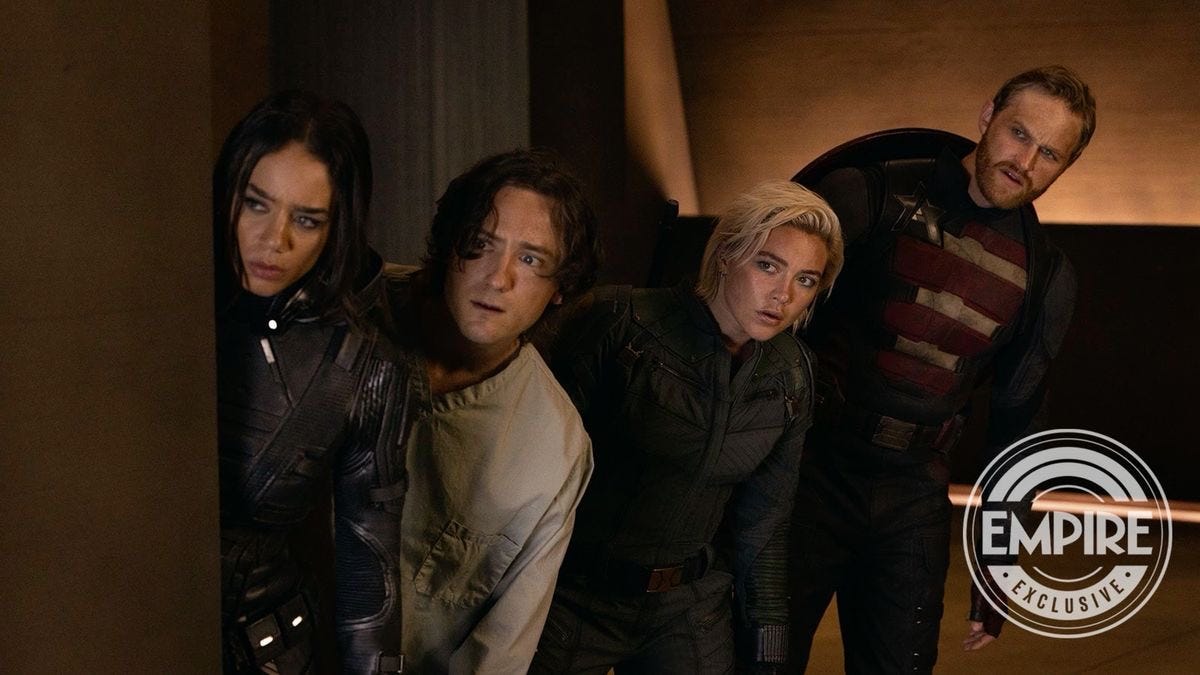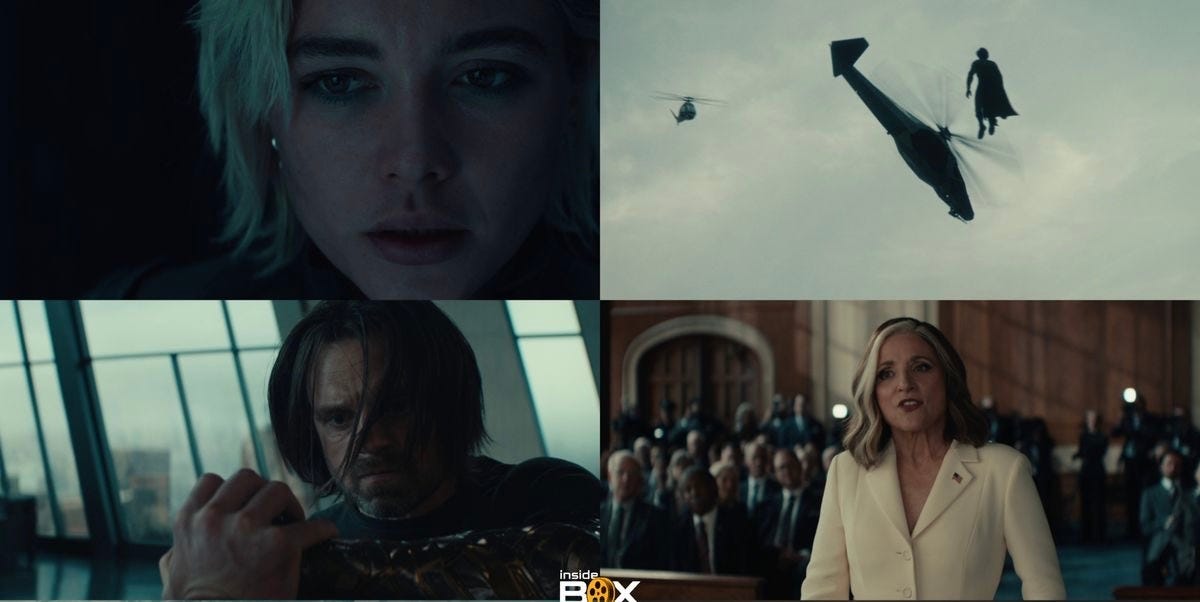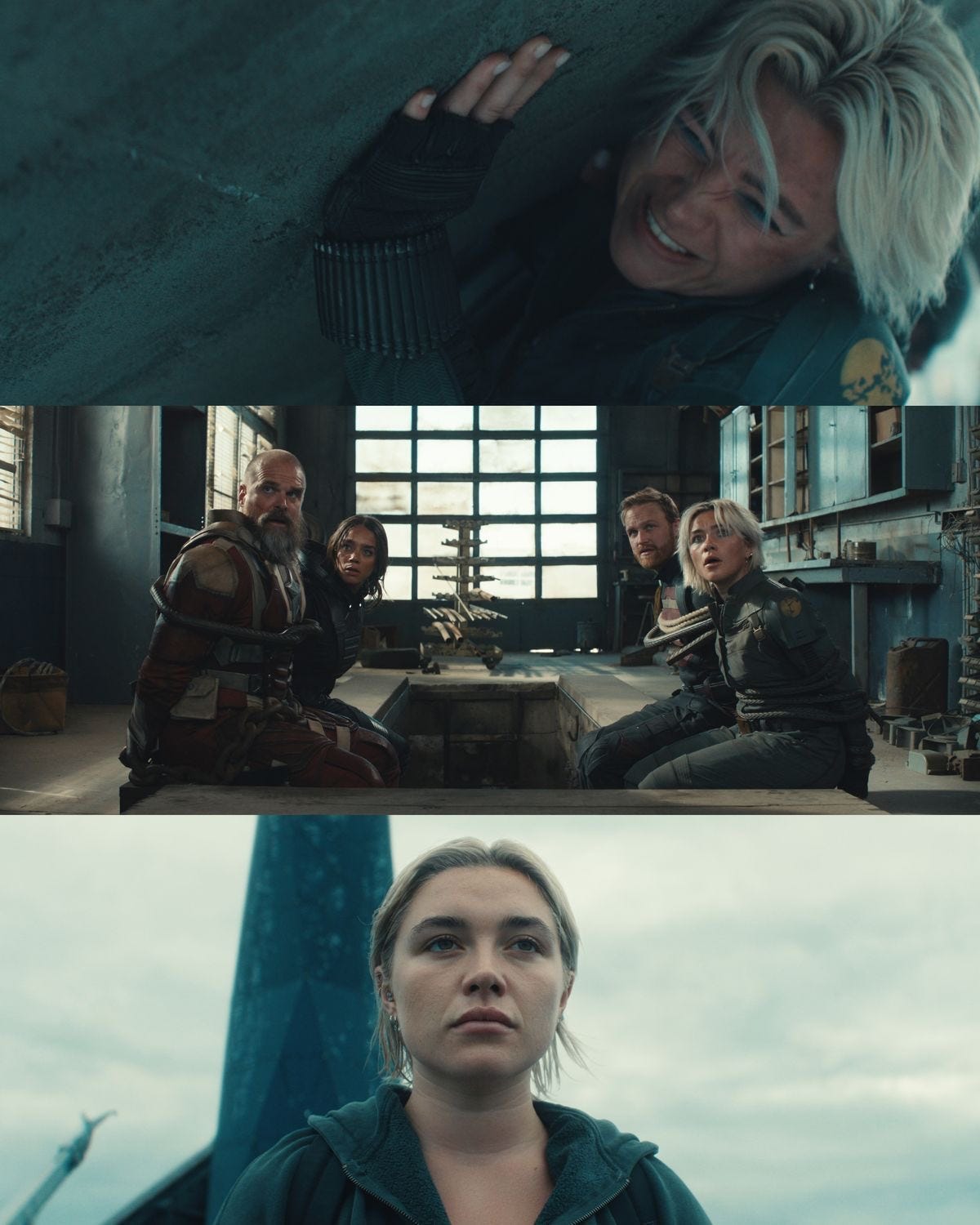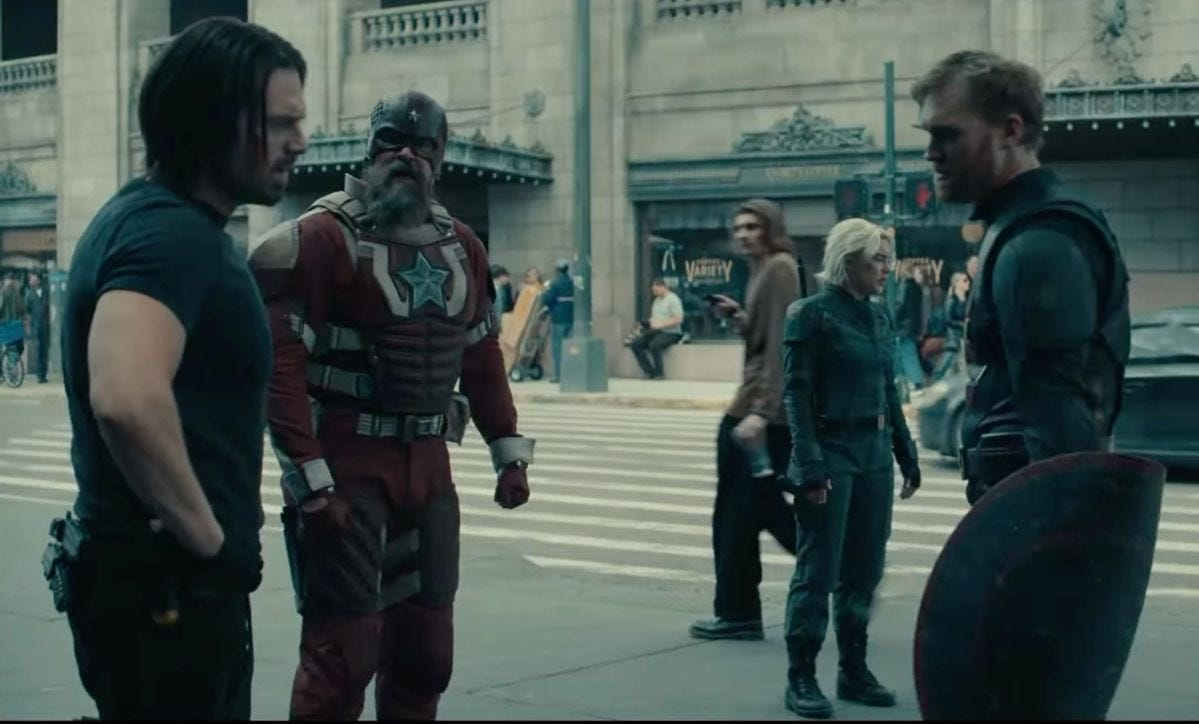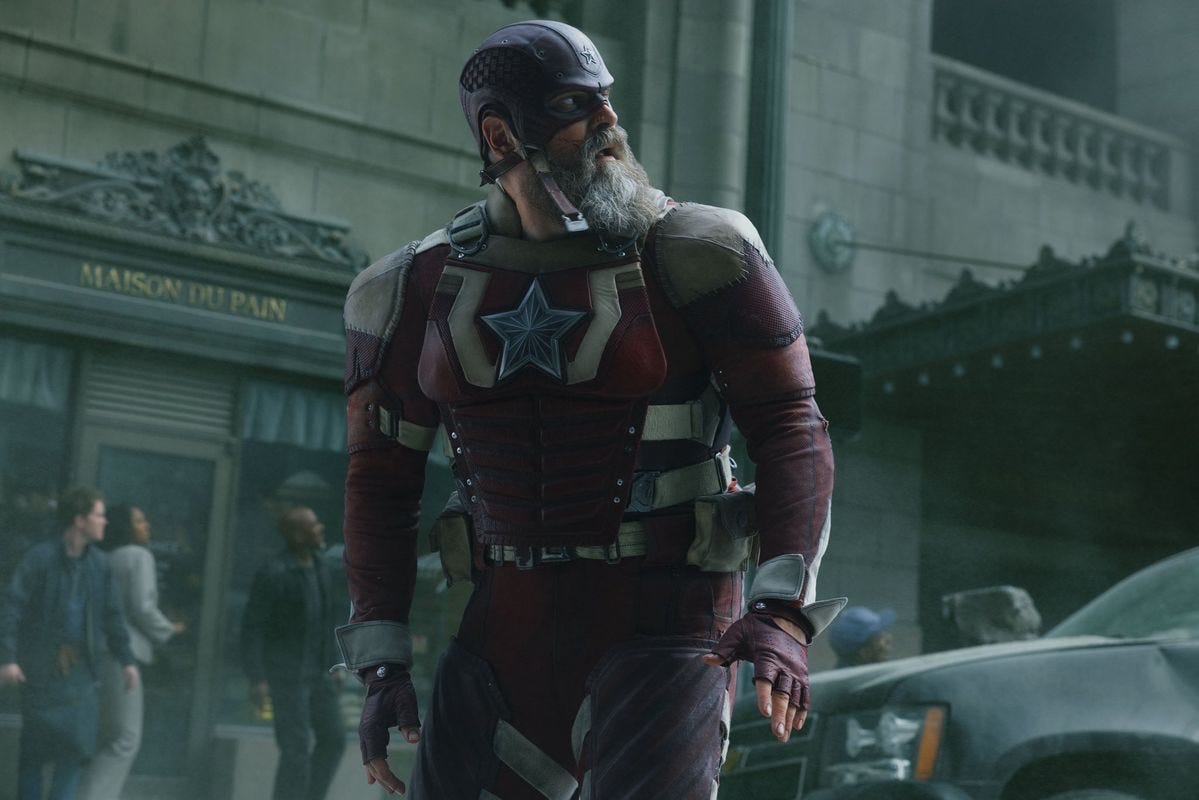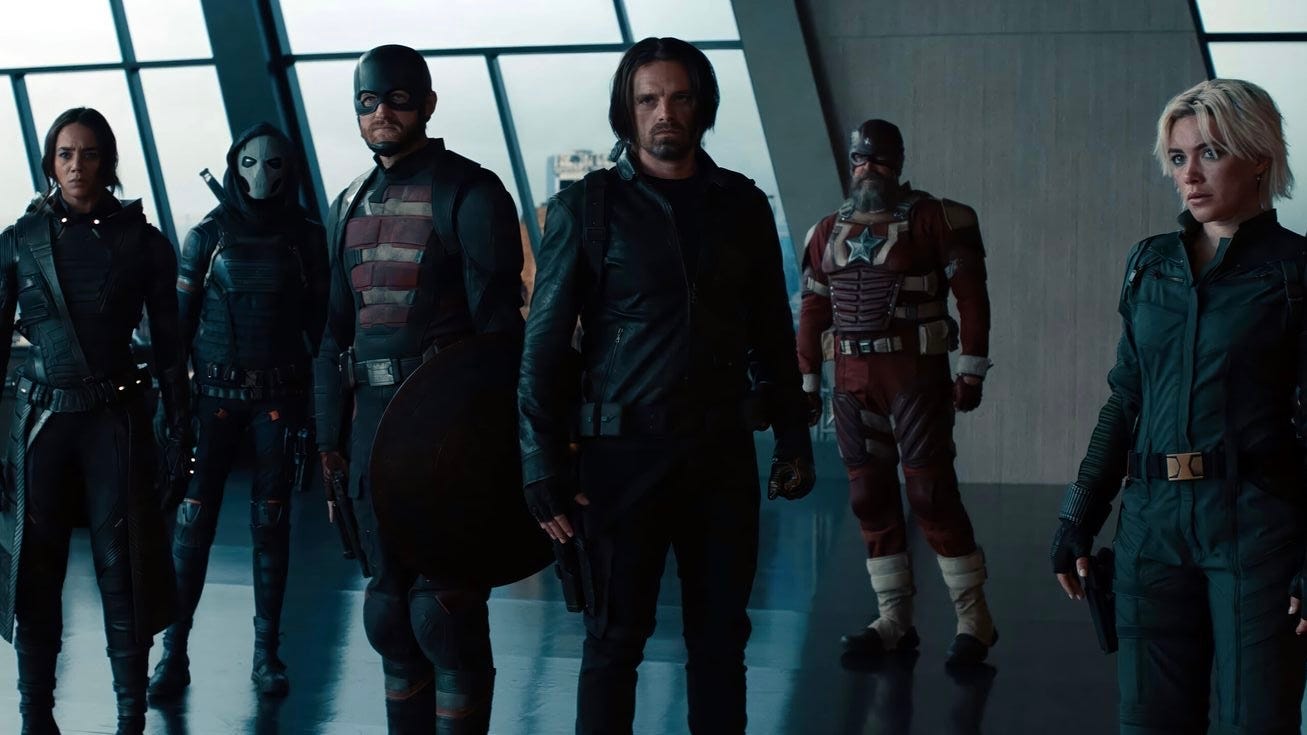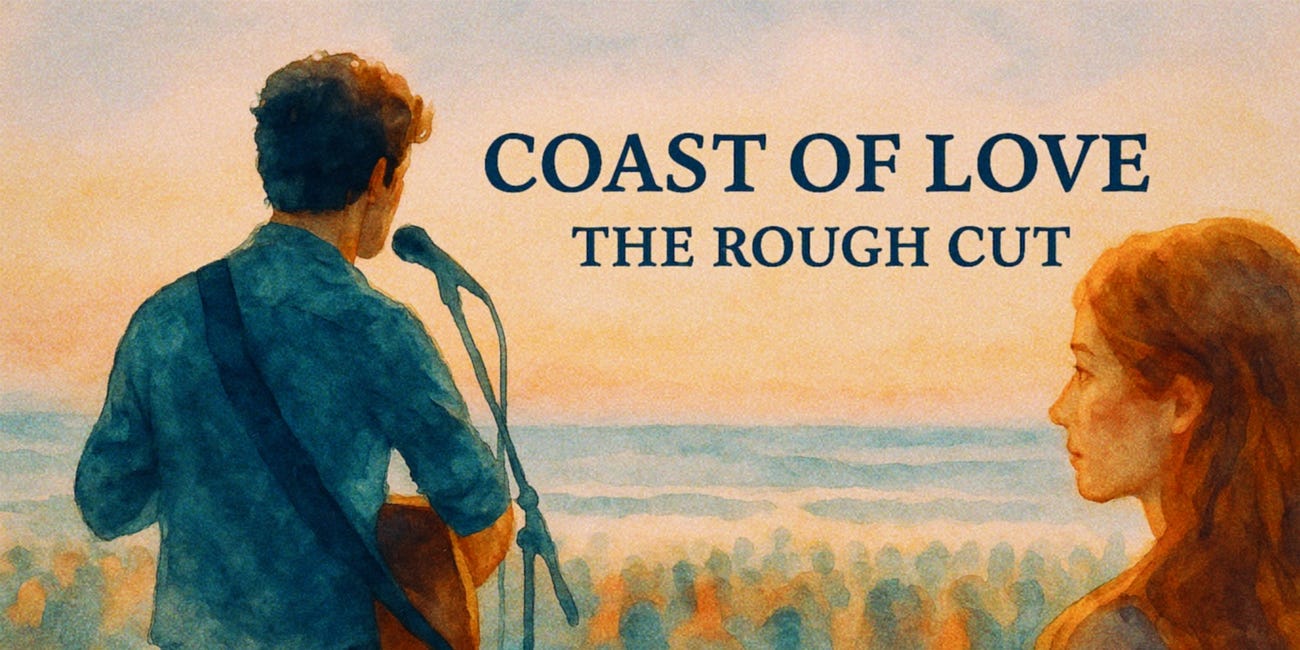Watched: May 6, 2025
Theater: Regal Times Square (Standard 2D)
Second Viewing
The First Time, I Wasn’t Ready
I didn’t walk out of Thunderbolts the first time—I sat there, stunned. It wasn’t the visuals, the plot, or even the performances. It was how hollow the theater felt. Five people in a premiere auditorium, shadows on the edge of the screen, muffled sound, a sense of void. I left angry. Not at the film—but at the weight it had revealed. The loneliness. The emotional isolation. The fact that it took Marvel this long to say what some of us have been feeling for years.
So I returned—same film, different setting. A standard 2D showing. Packed house. Laughter shared. Audible gasps. Clarity in the sound, nuance in the tone, and something that wasn’t there before: catharsis. The film hadn’t changed. I had. Or maybe I had finally let it reach me.
Foundations & Fractures
This film introduces a new team—the so-called New Avengers—but doesn’t fill in all the blanks. Where have they been? What were they doing during the chaos of Phase Four? Why now? It’s not airtight. It’s not always earned. But it’s raw. There’s emotional resonance in seeing antiheroes navigate regret, pain, and fractured leadership. And that rawness holds weight.
Foundations Score: 7.5 / 10
The Director’s Lens
Jake Schreier (Paper Towns, Kanye West’s Closed on Sunday) leans into mood and tone more than traditional action polish. There’s a gritty beauty here—especially in the early scenes where the color palette feels drained, drained like the characters themselves. Cinematographer Andrew Droz Palermo (The Green Knight) brings a cold elegance to the frame. Shadows matter. Composition matters.
Yelena’s opening fight sequence, lit from a single doorway, casting long shadows—it’s a quiet masterclass in visual storytelling. It’s also foreshadowing. She becomes a literal shadow by the film’s end. You feel it coming.
Imagery Score: 9.5 / 10
Where Story Becomes Soul
This isn’t a plot-driven movie. It’s a character study disguised as a Marvel team-up. The story is built on moments—micro-interactions, flash decisions, split loyalties. Grief. Trauma. And the bonds we try to build in their wake.
John Walker’s respect for Bucky. Red Guardian’s aching need to matter again. Yelena stepping into leadership not because she wants it—but because the moment demands it. There’s no exposition dump here. Just character stitching character, wound to wound.
Layered Storytelling Score: 10 / 10
In Motion
Technically, the movie moves well. Editing is tight. Action scenes are compelling—especially the car chase rescue with Bucky. But the final battle near Grand Central, echoing the first Avengers film, falls flat. It tries to echo past glory. Instead, it highlights how far we’ve come—and how different this team really is.
They’re not the old Avengers. And that’s okay.
Motion Score: 8.3 / 10
No Metaphor Left Behind
This movie isn’t subtle. Depression. Isolation. Aging. Redemption. They’re all right there, in the text, the subtext, and sometimes just the dialogue.
David Harbour’s Red Guardian, talking about feeling forgotten after being a celebrated hero, becomes a stand-in for every veteran, every aging dreamer, every once-was. The characters don’t just fight bad guys—they fight their own narratives. They fight the silence that follows the noise.
Subtext Score: 9 / 10
Total Score: 8.86 / 10
Final Rating: ★★★★½
Personal Dialogue: Second Chances
Dear Thunderbolts,
You caught me off guard the first time. You hurt, but not because you failed. You hurt because you hit close to home. But I saw you again—and this time, you showed me something different.
You showed me that even heroes need help. Even icons fall short. And when they do, it’s not always about standing back up alone. Sometimes the most heroic thing is admitting you need a team.
We don’t need another perfect superhero film. We need reminders that strength can be messy, ugly, tender. That even in a universe of multiverses, real healing starts in the shadows—when someone chooses to stay.

